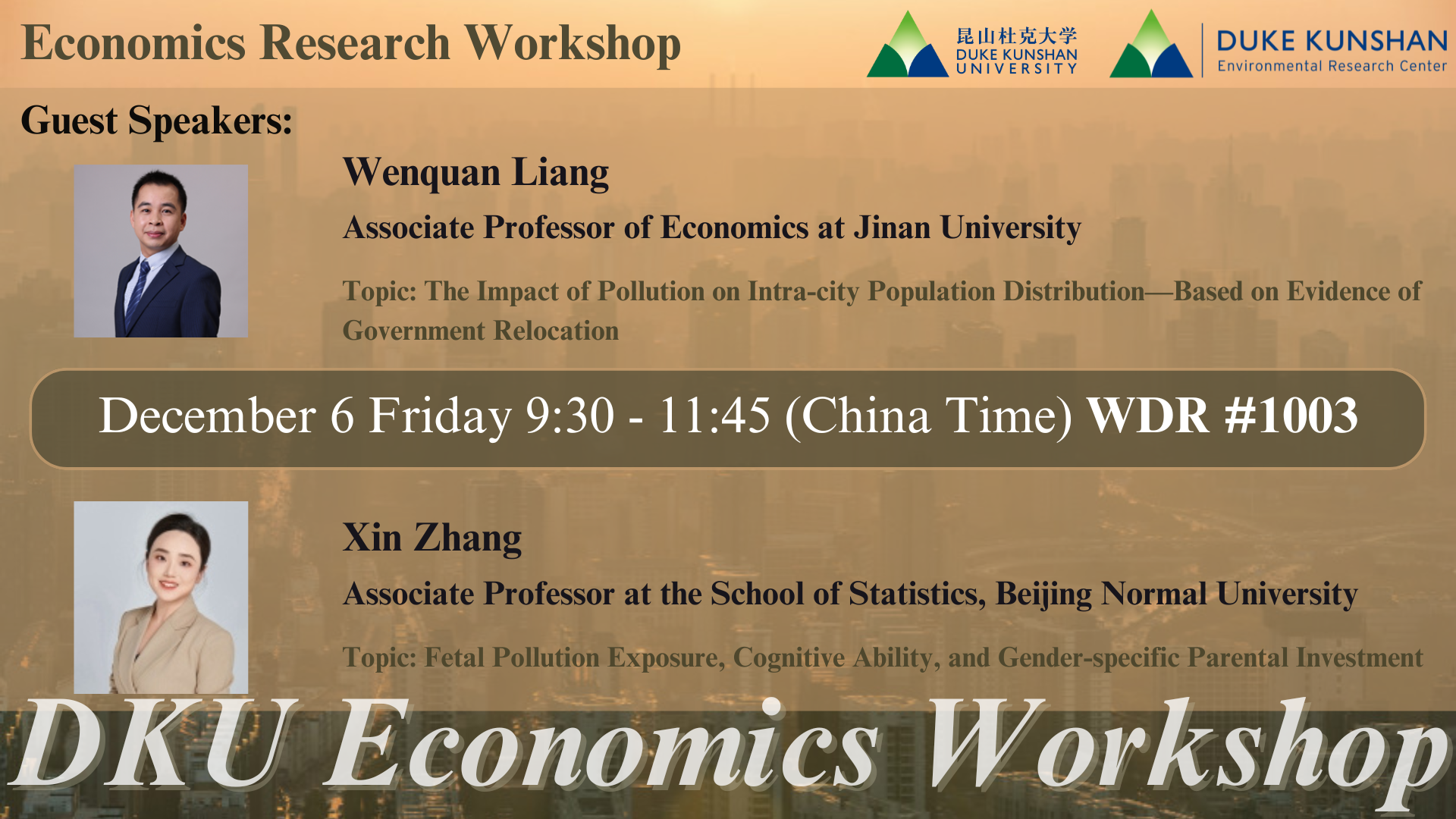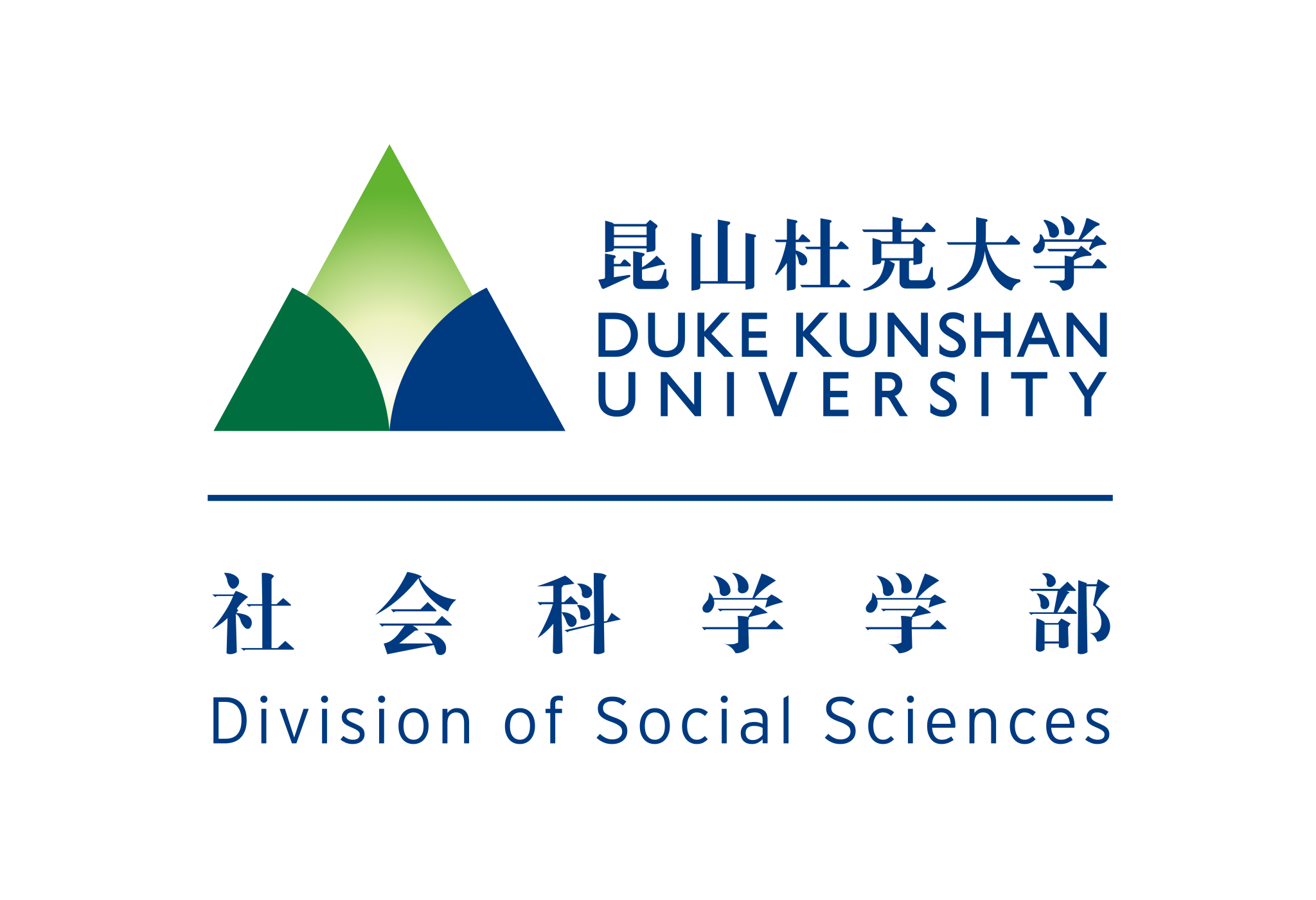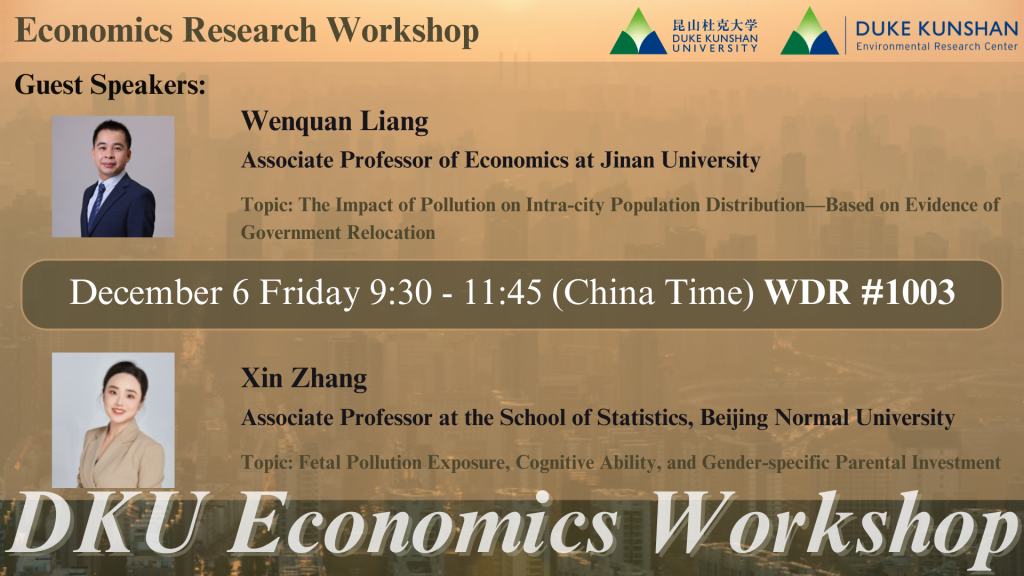
Econ Research Workshop
Abstract
The Impact of Pollution on Intra-city Population Distribution—Based on Evidence of Government Relocation
Using the Chinese Industrial Enterprise Pollution Database and county-level statistical data from 1998 to 2014, this study examines the impact of pollution emissions and the distribution of pollution within cities on the population. To address endogeneity issues, the study also employs the relocation of city government offices from 2000 to 2016 as an exogenous shock to construct a staggered Difference-in-Differences (DID) model for identifying the effects of pollution on the population in upwind areas within cities. The results show that an increase in pollution emissions in a county significantly decreases its resident population, and the distribution of pollution within a city also affects the population in different counties within the city. After the relocation of government offices, pollution in upwind areas significantly increases while the population significantly decreases. Mechanism analysis suggests that after the relocation, firms in upwind areas reduce pollution facilities, increase pollution emissions, and experience an increase in land allocation for heavy industries. Further investigation reveals that young individuals with higher education levels are less tolerant of the spread of pollution in upwind areas within cities, leading them to choose to move away from cities with higher pollution emissions in these areas.
Fetal Pollution Exposure, Cognitive Ability, and Gender-specific Parental Investment
This paper examines the impact of fetal exposure to air pollution on low-stakes test performance across a broad age range, with a focus on gender-specific parental responses to this negative shock. Using data from a nationally representative survey in China, we find that fetal PM2.5 exposure significantly reduce cognitive ability in women, particularly those with brothers. Gender-biased human capital investment by families tends to amplify the harmful effects for girls, while diminishing these effects for boys. Specifically, when exposed to the same level of fetal PM2.5, females receive less homework assistance from their families and attain lower levels of education.
Biography
Wenquan Liang, Associate Professor of Economics at Jinan University. His fields of interest are Urban Labor Economics, Environment Economics. His current research focuses on the spatial sorting with heterogenous skill types in China. His papers were published in International Economics Review, Journal of Environmental Economics and Management, Journal of Housing Economics, China Economic Review.
Xin Zhang is an Associate Professor at the School of Statistics, Beijing Normal University. Her research focuses on environmental economics and health economics. She has published papers in Proceedings of the National Academy of Sciences of the United States of America, Journal of Environmental Economics and Management, Journal of the Association of Environmental and Resource Economists, and Journal of Population Economics. She has received funding from the National Natural Science Foundation of China’s General and Youth Programs, as well as the China Postdoctoral Science Foundation’s General and Special Funding Projects. Additionally, she serves as an associate editor for Economic Change and Restructuring.
To register for this event email your details to shuqian.xu@dukekunshan.edu.cn
Date And Time
2024-12-06 @ 11:30 AM




